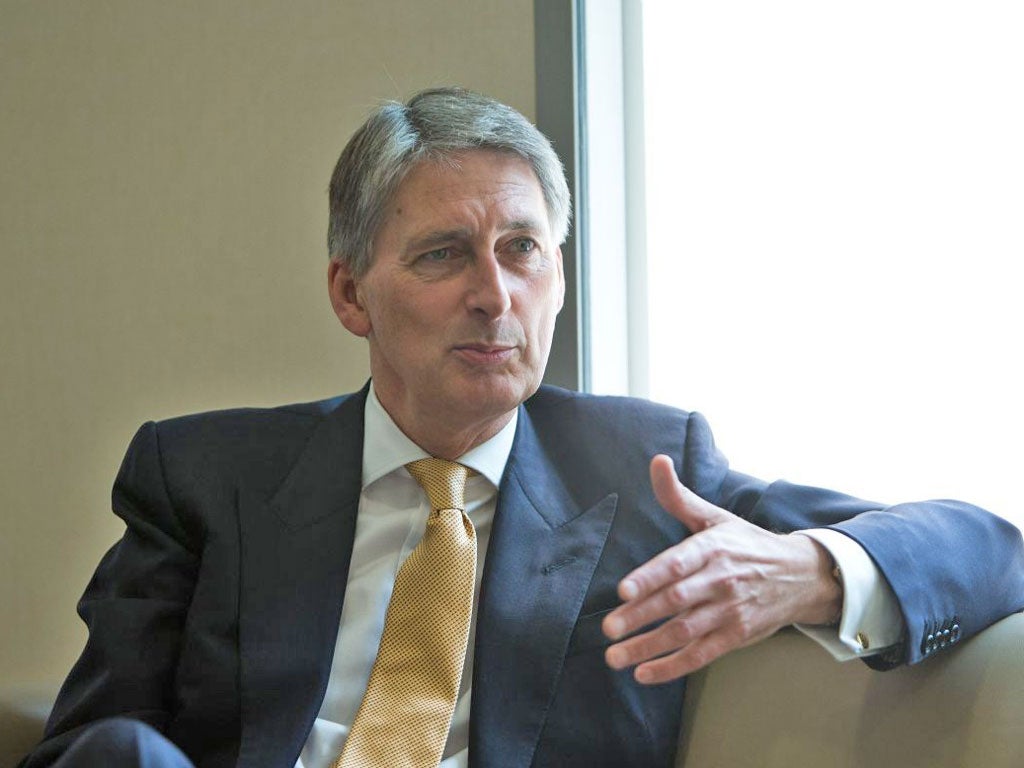Exclusive: G4S proves we can't always rely on private sector, says minister
Philip Hammond says Olympic chaos forced policy rethink

Your support helps us to tell the story
From reproductive rights to climate change to Big Tech, The Independent is on the ground when the story is developing. Whether it's investigating the financials of Elon Musk's pro-Trump PAC or producing our latest documentary, 'The A Word', which shines a light on the American women fighting for reproductive rights, we know how important it is to parse out the facts from the messaging.
At such a critical moment in US history, we need reporters on the ground. Your donation allows us to keep sending journalists to speak to both sides of the story.
The Independent is trusted by Americans across the entire political spectrum. And unlike many other quality news outlets, we choose not to lock Americans out of our reporting and analysis with paywalls. We believe quality journalism should be available to everyone, paid for by those who can afford it.
Your support makes all the difference.G4S's failure to provide enough Olympic security guards has taught ministers that private firms are unsuited to providing many public services, the Defence Secretary has admitted.
In an interview with The Independent, Philip Hammond said the G4S saga had caused him to rethink his scepticism towards the public sector – and made him appreciate there were some things that only state organisations like the Army could be relied upon to do.
Mr Hammond's frank admission of the limits of the private sector, from a minister currently overseeing the largest overhaul of Britain's armed forces in a generation, will be welcomed by senior military commanders. Some have privately expressed concerns Mr Hammond is intent on pushing through a programme of creeping privatisation as cuts force troops to rely increasingly on commercial contractors.
But Mr Hammond said G4S's failure to live up to its obligations to provide enough Olympic security guards had taught him an important lesson. "I came into the MoD with a prejudice that we have to look at the way the private sector does things to know how we should do things in Government," he said. "But the story of G4S and the military rescue is quite informative.
"I'm learning that the application of the lean commercial model does have relevance in areas of the MoD but, equally, you can't look at a warship and say, 'How can I bring a lean management model to this?' – because it's doing different things with different levels of resilience that are not generally required in the private sector."
Mr Hammond said he is considering legislating to make it illegal for employers to ask whether a potential employee is a member of the reserves. The Government needs to find another 15,000 reservists by 2020 to fill the gap left by cuts in the Army and the Defence Secretary is concerned some employers might avoid taking people on if they knew they would be called away.
"You are not allowed to ask people when you interview them whether they're planning to have a baby. But you are apparently allowed to ask them if they are a reserve or planning to join the reserves," he said. "I think we might need to look at this."
Mr Hammond also admitted that Iraq and Afghanistan had made it much less likely that future governments would commit "boots on the ground" to foreign conflicts.
"I think people are aware now, because they have seen it twice, that it's easier to get in than to get out of these things," he said. "I'm sure that governments in the future and public opinion will be more cautious."
Join our commenting forum
Join thought-provoking conversations, follow other Independent readers and see their replies
Comments